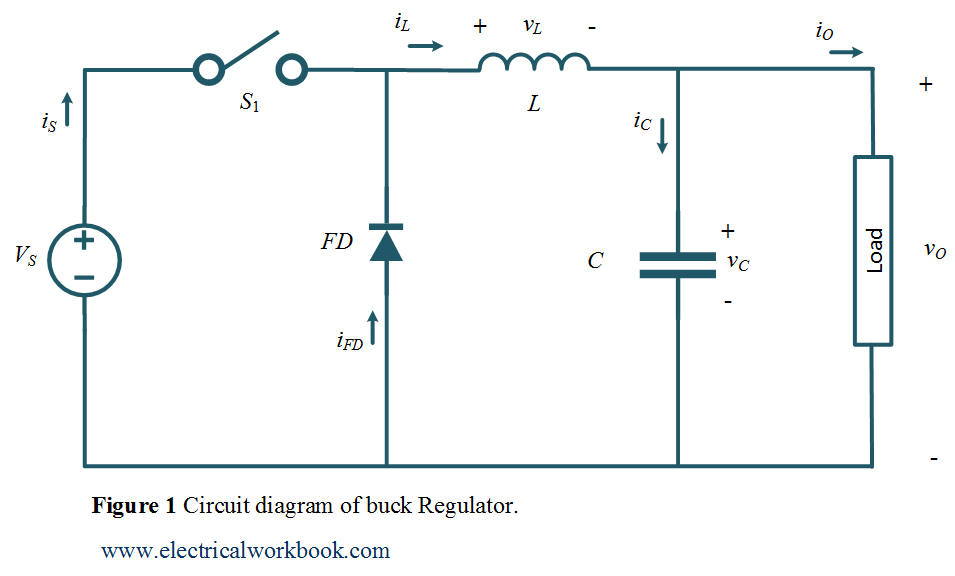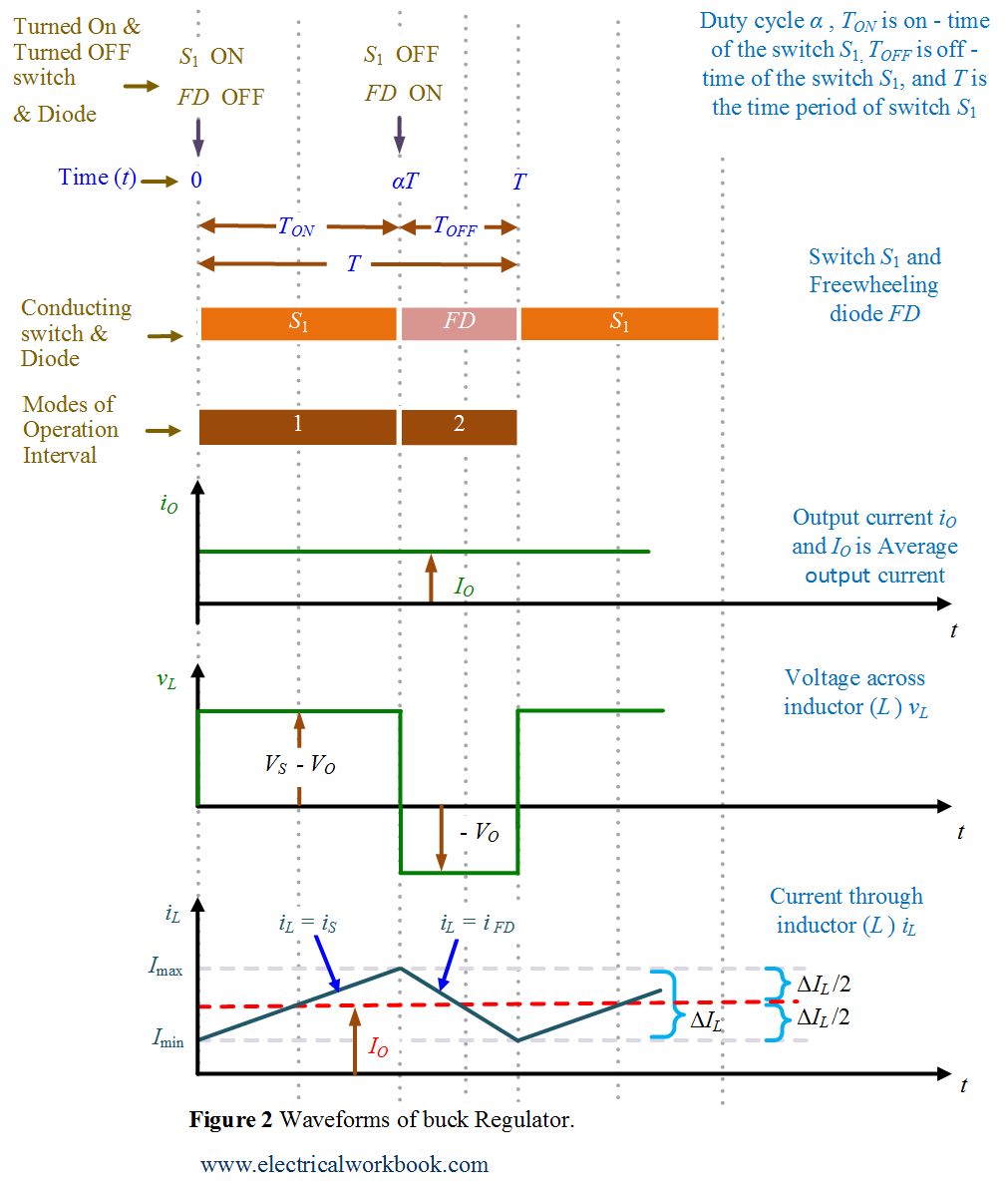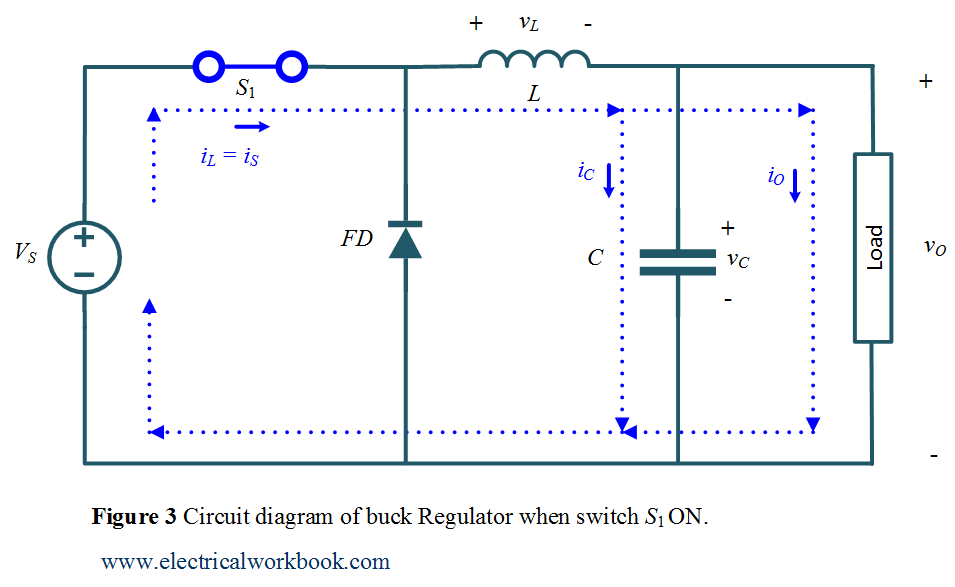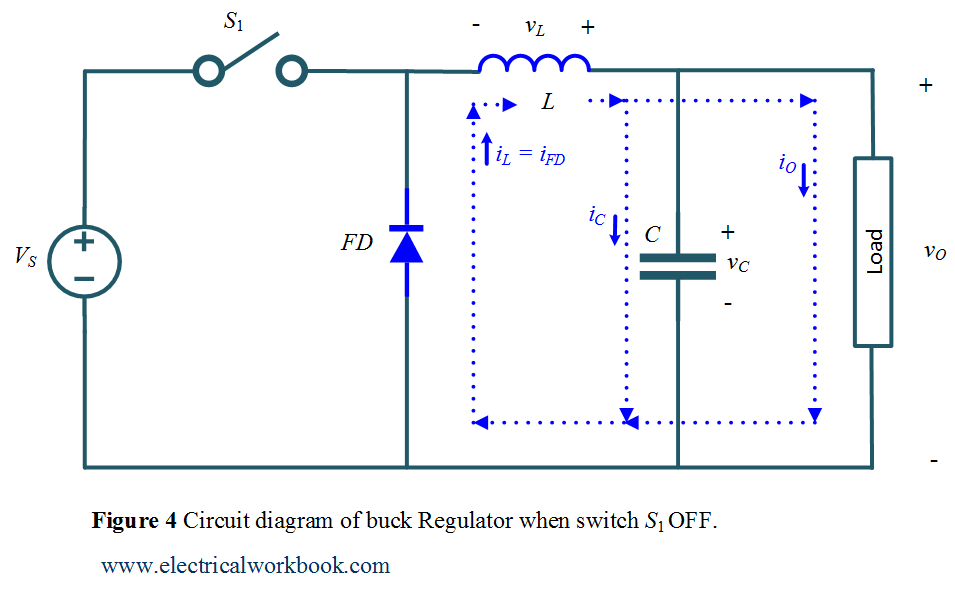In this topic, you study the Buck Regulator Circuit diagram, Waveforms, Modes of operation & theory.
The buck regulator produces a lower average output voltage than the dc source input voltage. Let us assume large filter capacitance C connected across the load so that output voltage remains almost constant. The Resistive load is considered.
Circuit diagram
The working of a buck regulator is explained using the circuit diagram as shown in Figure 1. The regulation is normally achieved by PWM (Pulse Width Modulation) at a fixed frequency and using the switch ${S_1}$ shown in the circuit diagram can be a conventional thyristor i.e., SCR, a GTO thyristor, a power transistor, or a MOSFET.

Waveforms
The typical waveforms in the converter are shown in Figure 2.

Modes of Operation Interval
The two modes in steady state operations are
Mode of Operation Interval 1: –
The time interval is 0 ≤ t ≤ ${T_{ON}}$. The circuit diagram for Mode of Operation Interval 1 is shown in Figure 3 and the corresponding waveforms are shown in Figure 2. The switch ${S_1}$ is turned on, the source or inductor current increases linearly and flows through the switch ${S_1}$, inductor L, filter capacitor C and Resistive load. The diode FD gets reverse biased and does not conduct. The inductor stores energy during this interval.

Mode of Operation Interval 2: –
The time interval is ${T_{ON}}$ ≤ t ≤ ${T_{OFF}}$. The circuit diagram for Mode of Operation Interval 2 is shown in Figure 4 and the corresponding waveforms are shown in Figure 2. The switch ${S_1}$ is turned OFF, the source (or input) current reduce to zero. The inductor current decreases linearly and flows through the inductor L, filter capacitor C, Resistive load and freewheeling diode FD. The inductor release energy using freewheeling diode FD during this interval.
